2024 Annual Report:
Public gathering spots, a social service center and outdoor recreation activities strengthen communities.
In December 2024, Lilly Endowment awarded 30 grants totaling more than $171 million to support community foundations and their partners throughout Indiana as they work to make their towns, cities, counties and regions better places in which to live and work. These large-scale competitive Community Leadership Grants were one component of the eighth phase of the Endowment’s initiative, Giving Indiana Funds for Tomorrow (GIFT VIII). Through all components of grantmaking in GIFT VIII, the Endowment has awarded a total of $312 million to community foundations serving all 92 counties.
The competitive grants, which range from $467,327 to $20 million, fund a variety of projects and programs that address neighborhood and downtown revitalization projects, affordable housing, early childhood education, the development and enhancement of trails and other outdoor recreation amenities, and improved delivery of social services, including mental health and substance use disorder treatment options.
In soliciting proposals for this grant opportunity, the Endowment encouraged community foundations to engage a broad cross section of local stakeholders so they could work collaboratively to prioritize communities’ needs and pursue opportunities that have great potential to enhance local quality of life.
Food Brings Community Together
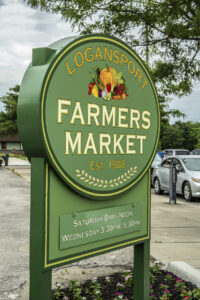 The Cass County Community Foundation was awarded $5 million to construct a 16,000-square-foot, multi-use venue to serve as the permanent location for the Logansport Farmers Market. Plans call for a market pavilion to open by fall 2025 and an incubator kitchen to begin operating in January 2026. To complement this project, the city of Logansport intends to make public land downtown available for use as community gardens where residents can grow fresh produce to eat or sell at the farmers market.
The Cass County Community Foundation was awarded $5 million to construct a 16,000-square-foot, multi-use venue to serve as the permanent location for the Logansport Farmers Market. Plans call for a market pavilion to open by fall 2025 and an incubator kitchen to begin operating in January 2026. To complement this project, the city of Logansport intends to make public land downtown available for use as community gardens where residents can grow fresh produce to eat or sell at the farmers market.
The idea behind this venture is that food is a great unifier, and the farmers market is a gathering place that brings the community together, said Deanna Crispen, president and CEO of the community foundation. Logansport’s population has become increasingly diverse in recent years, with students in Logansport schools representing 28 countries and roughly 18 percent of the city’s residents hailing from Mexico, El Salvador, Guatemala and Haiti, as well as other countries in the Caribbean. Many new residents have come to Logansport to work in its meat processing plants and in the region’s agricultural industries.
“We discovered through the planning grant process that people in our community truly value their farmers market,” Crispen said. “And in a time when people can struggle with the issues that seem to divide them, there is something innately good about gathering around food and sharing fellowship. The farmers market is a place where cultures come together, where you can experience world cuisine and where all belong. The incubator kitchen just adds another experience and opportunity to grow our economy and sense of place around food. After all, everybody eats.”
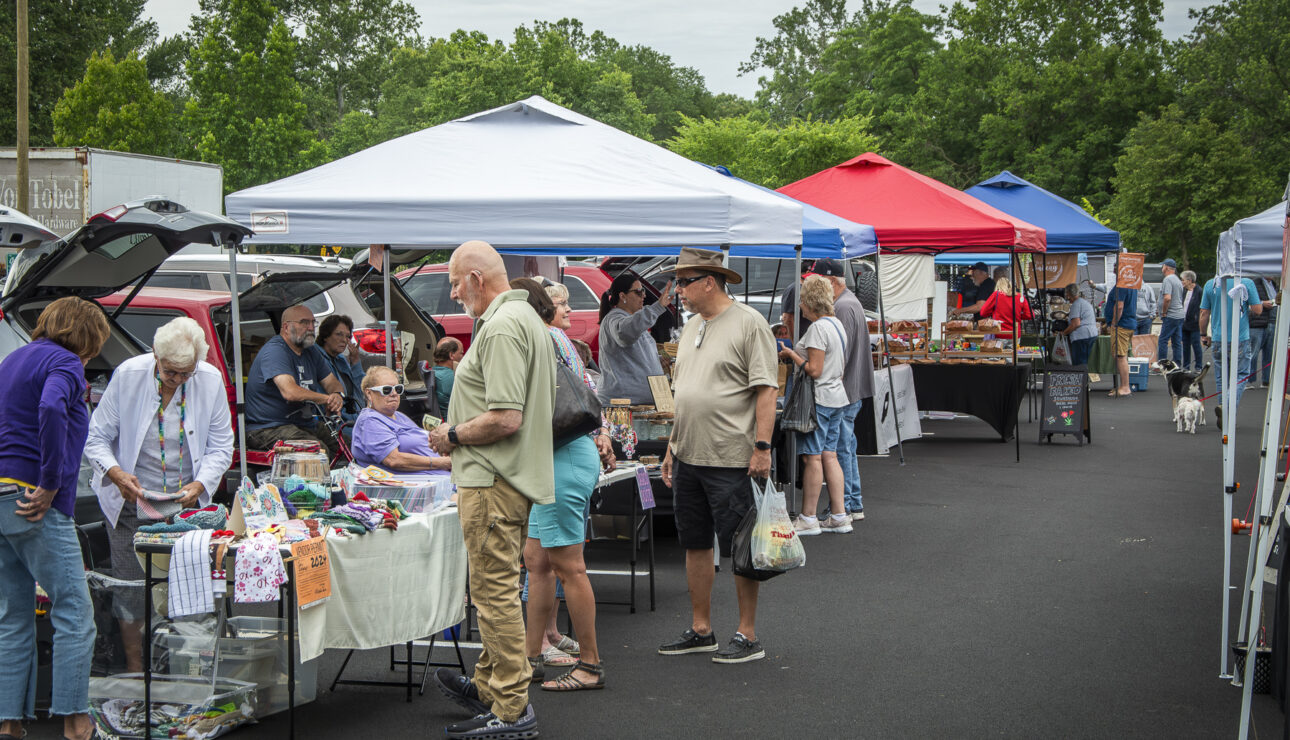
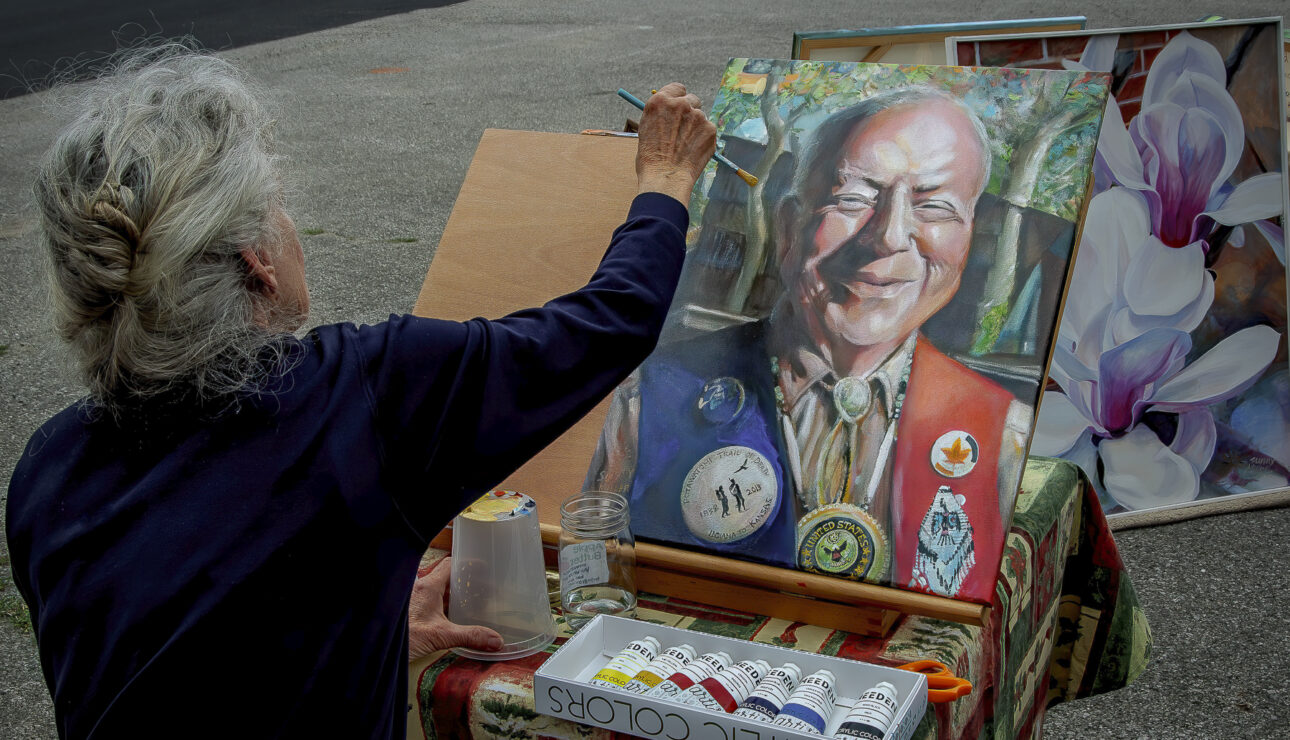
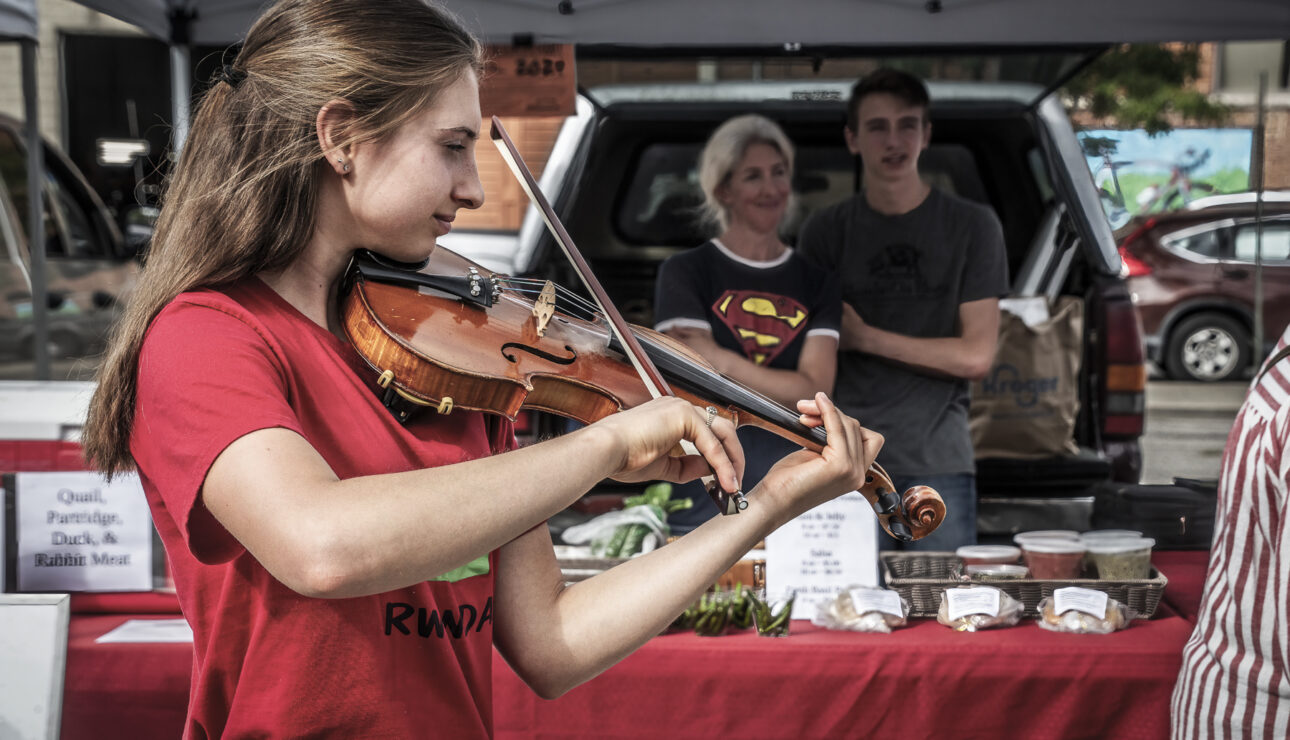
Logansport’s farmers market opened in 1988 and has been relocated within the city several times, according to Emily Klabunde, the market manager. She also has been a vendor at the market for eight years, selling produce, gamebirds and rabbits that she and her family raise. For the last four years she has served on the market’s board of directors. Klabunde believes the market is both a hub for the community and a great business incubator. She tells stories of an 83-year-old local resident who comes to the market every week to sell apples from his orchard and of another man who opened his own butcher shop after a few years of selling at the farmers market.
Klabunde said the new farmers market facility will provide more than just a building. “This is the culmination of years of work and the community’s pulling together to prove that community matters,” she said. “A sheltered meeting place that provides permanence and functionality, such as electricity and restrooms, for our farmers market proves that people and the community come first; that people are at the heart of the community. When I go to other cities and towns and see that they have a well-maintained public area in their downtown, it signals to me that people are valued in that town. And I am proud that because of this grant, Logansport is moving in that direction, proving that our rich and diverse community is valued.”
Centralized Services Make Getting Help Easier
In Shelbyville, Blue River Foundation (BRF) was awarded a $5 million grant through GIFT VIII to support the development of the Nonprofit Center, a new 31,000-square-foot community center intended to address residents’ basic needs in a centralized location.
Approximately 6,700 households in Shelby County either fall below the federal poverty level or are classified as asset-limited and income-constrained, according to BRF. They often are unable to access organizations that address food insecurity and housing needs or provide parenting and education support due to transportation barriers and the decentralized locations of providers. The new center will provide space for the programs of various social service organizations—including Gleaners Food Bank, Firefly Children and Family Alliance, and Women, Infants and Children, among others—and thereby more comprehensively address the needs of the county’s most vulnerable residents.
The Nonprofit Center will be housed in an existing building—a former nursing home—located on the south end of town within a block of Shelbyville High School and a couple of blocks from the Boys and Girls Club.
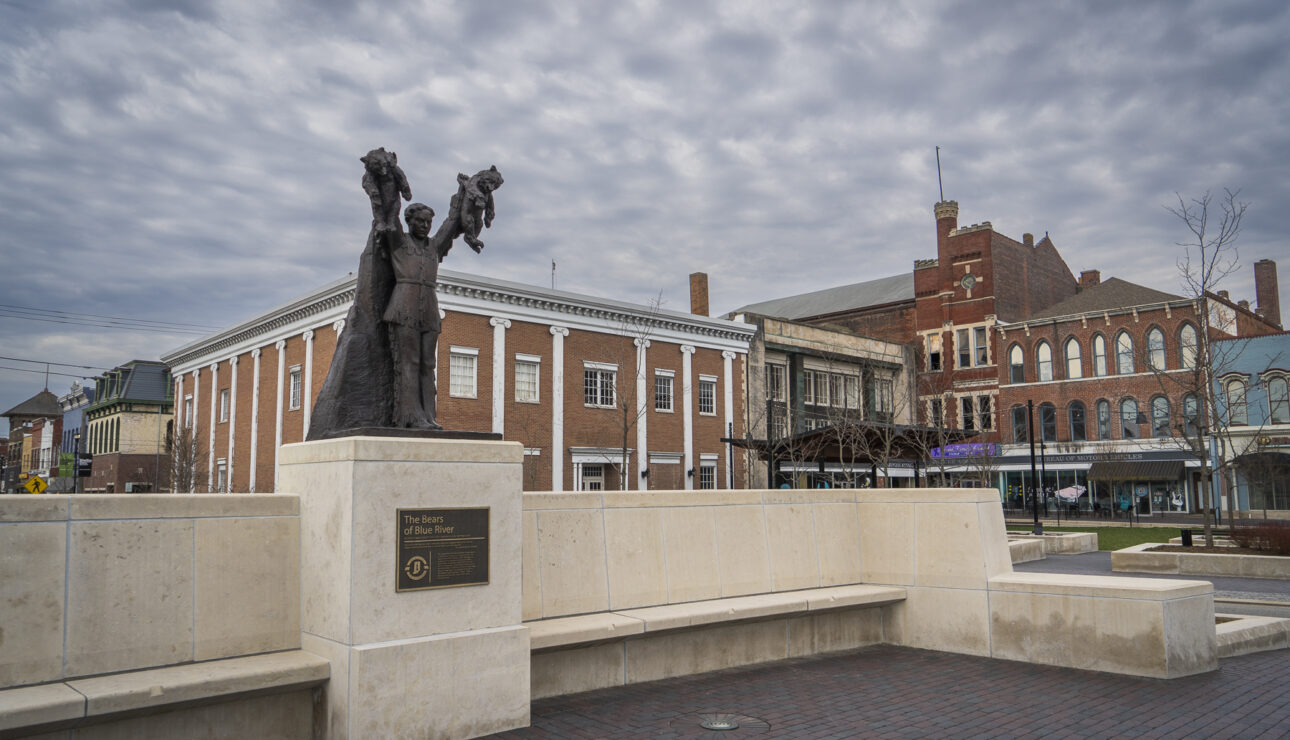
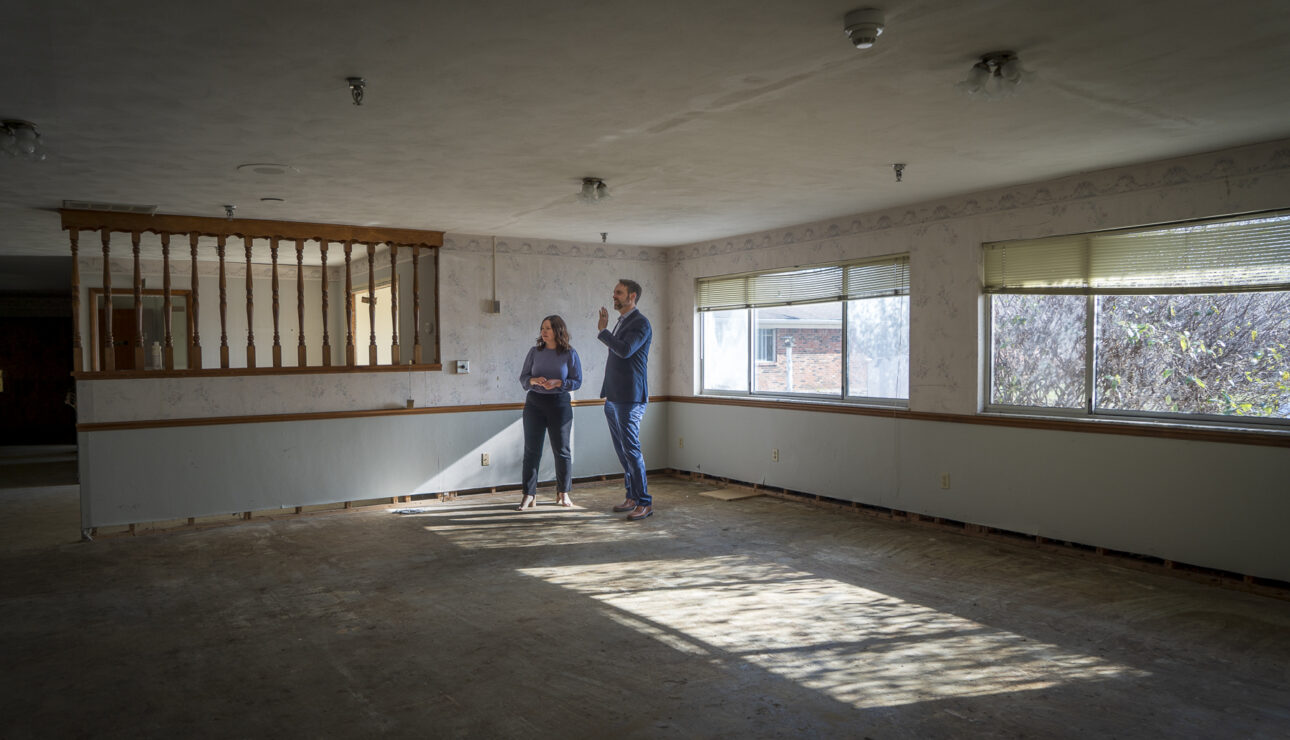
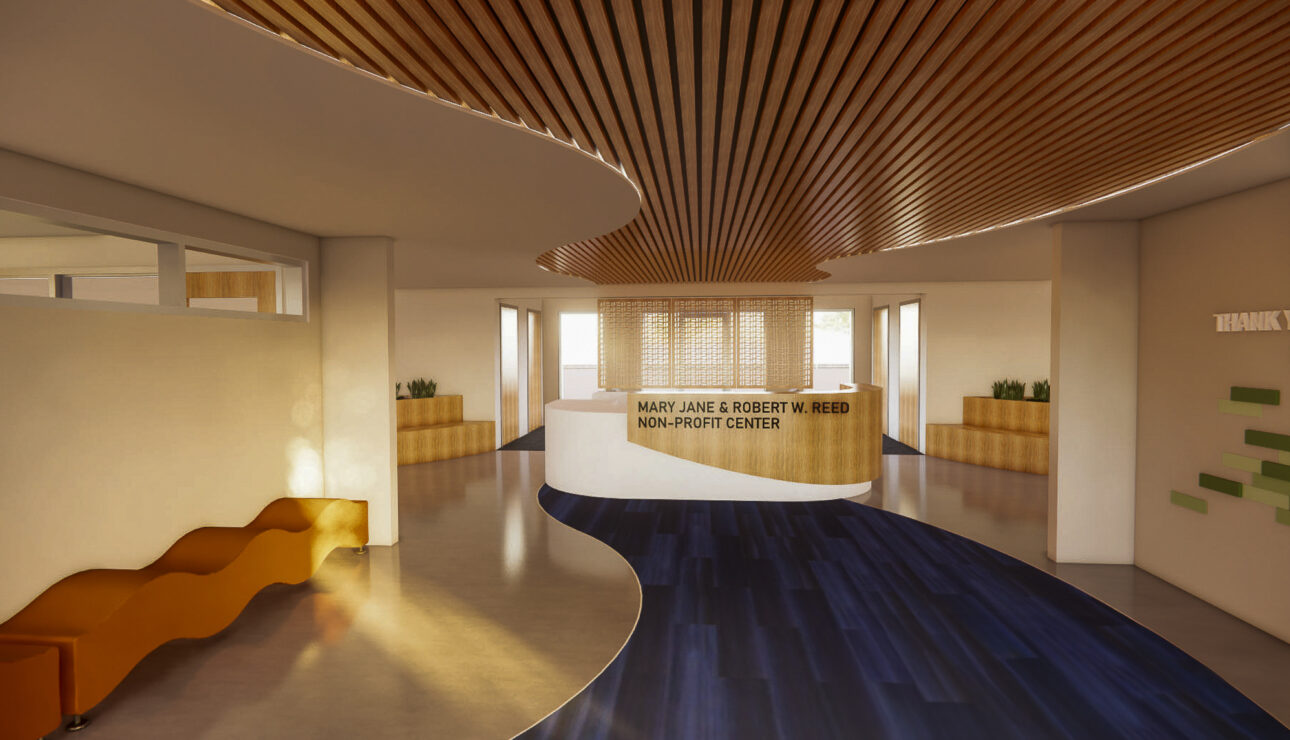
“This building isn’t just about these organizations colocating,” BRF executive director Jennifer Jones said. “It’s about them really collaborating with each other. Because they’re serving a lot of the same people, they can figure out how to serve people better and more efficiently. We’re excited to be able to support them in that way.”
Stephen Black, president of Healthy Shelby County, the nonprofit organization that owns and will manage the building, said the center will make life easier for people who need social services. Also, it will reduce the cost of overhead for nonprofit service providers, so they can then reinvest the saved funds for programing to meet the needs of the increasing number of people they are serving.
“Since COVID started, you would be shocked to learn the number of households in this community that need these services,” Black observed. “I have stood in the pantry lines on Saturday morning out at the fairgrounds and talked to more people than I can count who have said the phrase, ‘I never thought I would be in this line. I never thought I would need the services. I can’t believe I’m here.’ ”
Ultimately, the more people who are helped and “the healthier we are as a community, the more we help one another,” he added. “And the more we benefit the entire community—not just the individual that is being served—the more we create a healthier community across the board.”
Making the Outdoors User Friendly
In west central Indiana, Warren County Community Foundation, in collaboration with the Western Indiana Community Foundation, was awarded a $3 million GIFT VIII grant to develop outdoor amenities along the Wabash River in Fountain, Warren and Vermillion counties.
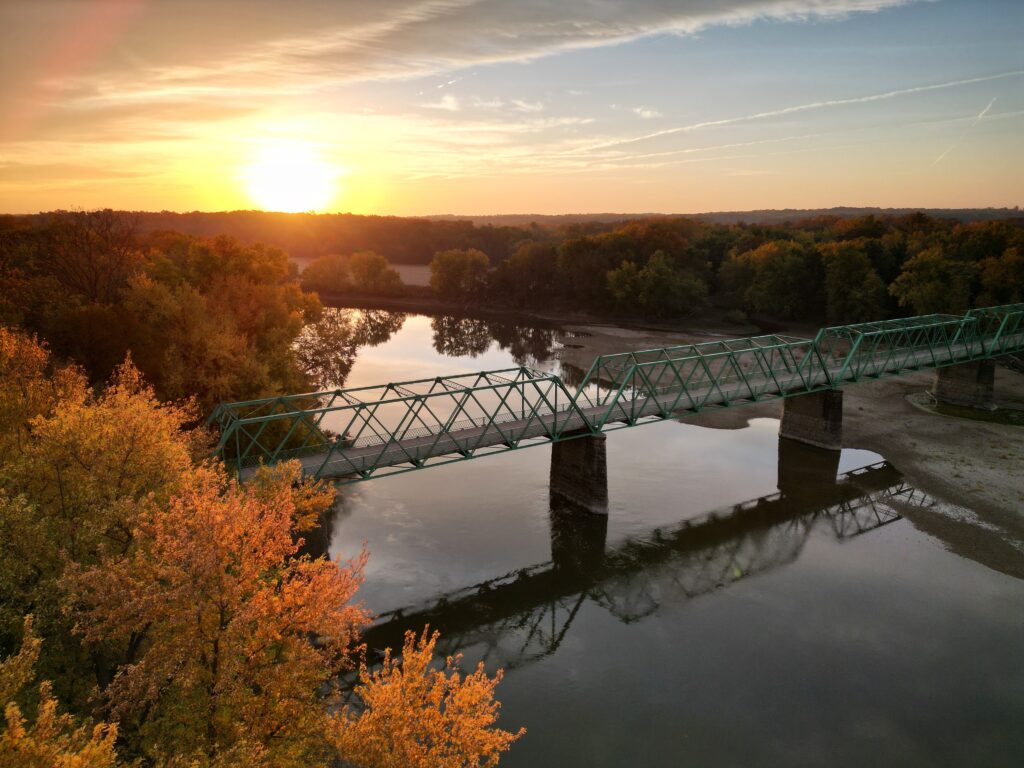
Wabash River in Indiana
The grant will fund several kayak launches that will provide new public access points along the river; conversion of a decommissioned covered railroad bridge into a new pedestrian bridge that will complete a six-mile walking trail in Covington, Ind.; branded wayfinding and other signage; and public art, including murals. The grant also will support programs and activities to activate the outdoor amenities, including kayak and bikeshare rental programs and education programs focused on conservation, among others.
Community foundations serving Warren, Fountain and Vermillion counties in western Indiana are helping residents and visitors engage with the beauty of the Wabash River valley.
The history of this effort dates to 2019, when Wabash Heartland Innovation Network, an Endowment-funded regional development initiative, awarded $1 million to the Wabash River Enhancement Corporation to develop a master plan for the Wabash River Greenway and Blueway network. The network is a 90-mile, multi-use trail corridor spanning five counties along the Wabash River in west central Indiana.
 Known as the WRGB master plan, the plan details a 353-mile looped trail network—including both land-based “greenways” and water-based “blueways”—that connect eight towns and cities along the river, according to Michele Stucky, executive director of Warren County Community Foundation. The plan envisions that the Wabash River Greenway and Blueway network will become a significant outdoor attraction. More than $65 million has already been secured to implement the WRGB master plan.
Known as the WRGB master plan, the plan details a 353-mile looped trail network—including both land-based “greenways” and water-based “blueways”—that connect eight towns and cities along the river, according to Michele Stucky, executive director of Warren County Community Foundation. The plan envisions that the Wabash River Greenway and Blueway network will become a significant outdoor attraction. More than $65 million has already been secured to implement the WRGB master plan.
The new outdoor activities that will emerge thanks to this grant have the potential to bring in visitors. Stucky, however, said the main benefit will be making residents’ lives better by giving them closer access to the area’s natural amenities and strengthening what it means to be community.
“We believe these projects will help residents see that the trails and waterways in their communities are beautiful,” Stucky said. “Working together on the proposal and now in getting to the work to make it a reality have strengthened connections among people in our area. And once the kayak launches and the trail and the bridge restoration are complete, we will be able to come together with pride to enjoy them and help future generations to come and do the same.”
Funds are supporting the efforts of community foundations and their partners throughout Indiana as they work to strengthen quality of life for the people in the towns, cities, counties and regions they serve. Competitive Leadership Grants make up only one component of GIFT VIII, however. Other components include matching grants designed to encourage donors to support their local community foundation, and board engagement grants meant to encourage community foundation board participation and engagement. In total, the Endowment has made grants totaling $312 million across all components of GIFT VIII.